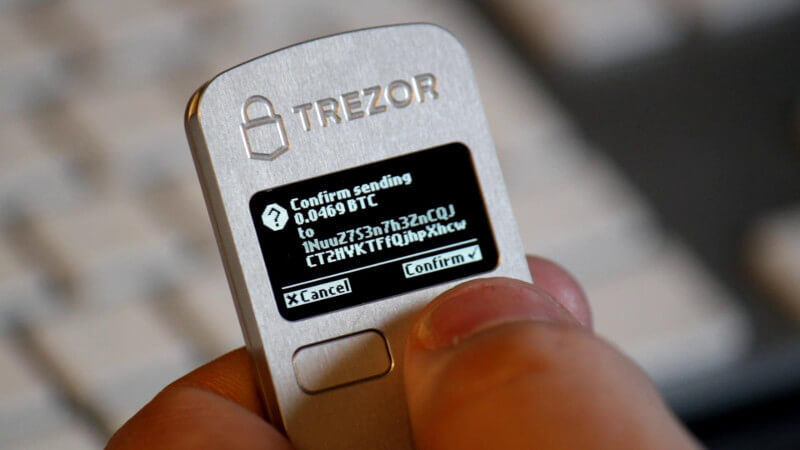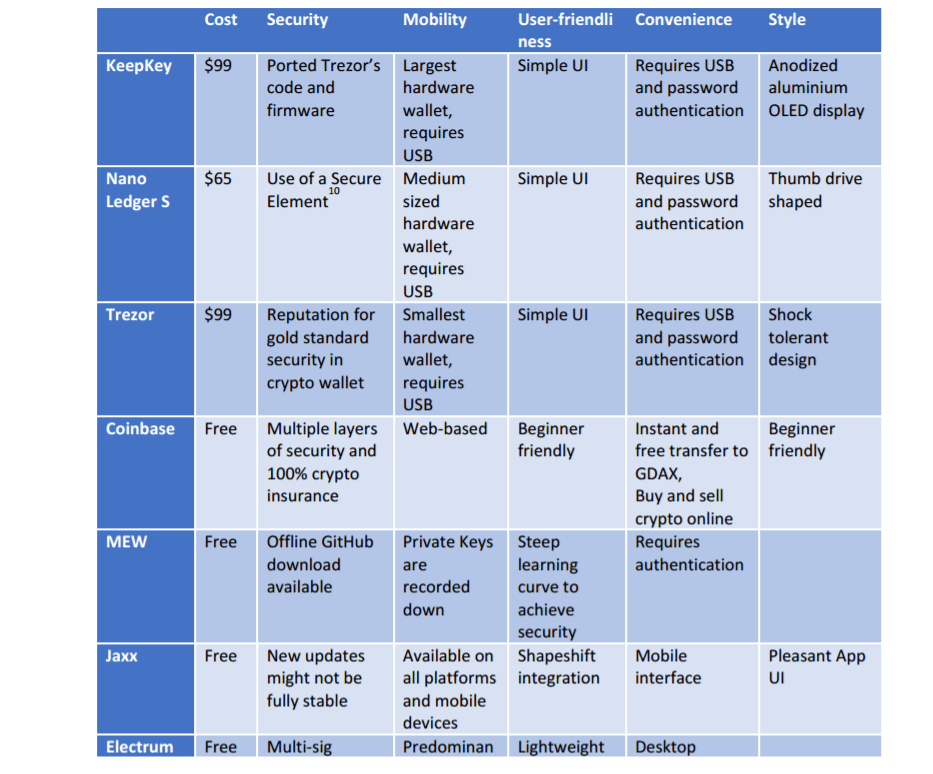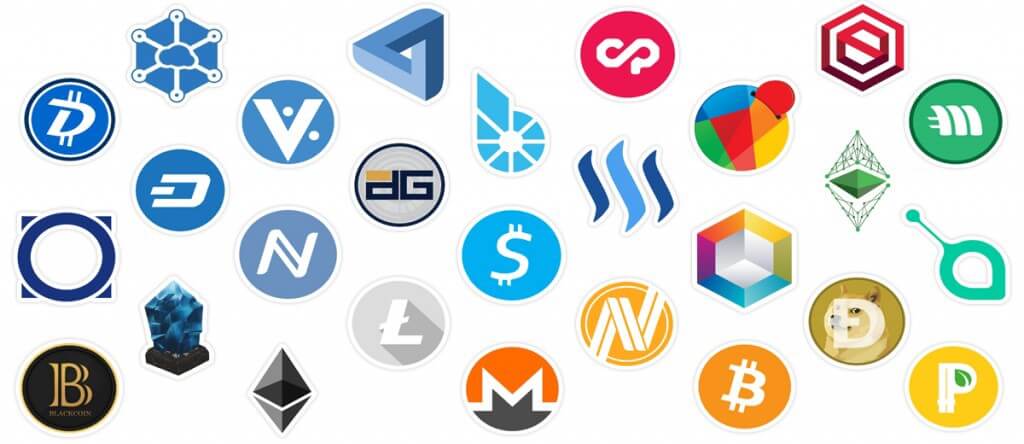Digital currency frenzy refuses to die down. More and more individuals and industries are adopting Bitcoins and altcoins. While buying and selling virtual currency is pretty straightforward, there is much ambiguity about Cryptocurrency wallets. A number of questions abound- what are these wallets actually? Are they safe? Are they anonymous? Which is the best wallet, and so on?
This blog aims to shed light on these and many other related issues. Read to get a complete, no-jargon account of Cryptocurrency wallets and much more.
What are Cryptocurrency wallets?
Cryptocurrency wallets, as mentioned in our Entrepreneur’s guide to blockchain, is one of three pillars of the Blockchain industry which holds the private and public keys of all bitcoins in your possession. They are not physical pocket wallets and neither do they hold any real coins or currency. They are software programs that hold the unique address of your digital currency. They not only store your Cryptocurrency but also transact them using blockchain transactions. It allows you to interface with various blockchains in the system and holds your bitcoin balance. It’s almost like PayTM wallet, except it doesn’t hold any physical currency. If you wish to purchase or spend Bitcoins, you need a Bitcoin or multi-currency wallet of some type.
Why Cryptocurrency Wallet?
There are a number of great features in Cryptocurrency wallets. They never run out of space. They (at least some of them) can hold multiple currencies, all neatly organized and marked. They have a nifty balance checker that tells you instantly how much balance is available, where and when the last transaction occurred, etc. They even have a notes accessory where you can jot down any special remarks about a particular transaction or Bitcoin to help you recall later. So, Cryptocurrency wallets are not just currency keepers, they are auditors and trackers too.
Bitcoin and blockchain are undeniably more than a trend. Blockchain applications find wide use and benefit in all major industry segments such as Finance, Healthcare, Education, Supply Chain Economics, IoT, and Security. Investing in blockchain app development can give exponential returns and wide visibility in this expanding domain. And for any blockchain or Bitcoin transaction to take place, cryptocurrency wallet set up is a must.
Working of Cryptocurrency Wallets
Cryptocurrency wallets reflect your account balance- your Bitcoins, your ICO tokens, and any other digital assets you own. These wallets work like a bank locker. We don’t share our locker with others and we keep our locker keys safe. We follow the same principles in crypto wallets. When you create a crypto wallet, a private key is generated. This should be safeguarded and not shared with untrusted entities. A public key is also generated. This has to be shared with people who wish to transfer your crypto. When a person sends you crypto, he will include the private key of his Bitcoins and the public key of your wallet. Thereafter transaction can be completed and new Bitcoins can reach your account.
When you spend some Bitcoins from your wallet, you are essentially signing off their ownership to the other person. For doing this, the private key of your Bitcoins must match the public address of the receiver. Then only, Bitcoins are transferred and your wallet balance reduces. The whole transaction is encrypted and added to the relevant blockchain and wallet balances of the two involved parties show changes.
Different types of digital currency wallets
Crypto wallets can be broken down into three categories- software, hardware, and paper. Software wallets can be for desktops or mobiles. A suitable software crypto wallet is essentially an application or software program that can be downloaded via web browsers. Hardware wallets can be purchased from computer accessory stores. Paper wallets can be printed out or written out on a piece of paper. They contain the public key of your wallet in QR form. This code can be printed out on paper, plastic or any other durable material and sealed for safekeeping.
Here is a complete breakdown of all Cryptocurrency wallet types –
Desktop wallets
These are software programs that can be downloaded to a laptop or PC. These wallets work even when not connected to the net. Different types are available for different Operating Systems. Armory, Multibit, and mSigna are some recommended desktop wallets.
Mobile wallets
Since handheld mobile devices are very popular, there are compatible mobile wallets available. Apart from their obvious portability, they have QR code compatibility that makes instant digital payments a breeze. Blockchain and Mycelium are reliable mobile wallets, designed for both iOS and Android users. For Blackberry mobile devices, Bitcoin wallet is a good choice.
Cold wallets/ Hot wallets
All wallets can be classified into two categories- cold wallets and hot wallets. Cold wallets are ‘offline’ and very secure. They should be used for large Bitcoin holdings. They are usually not hackable and can be used without net connection too. Hot wallets are ‘online’ and can be used only when net access is present. They are less secure than cold wallets but useful if you have to make frequent transactions.
Online web wallets
Online web wallets are maintained on the cloud by third parties. They require internet connectivity to work. Since private keys of these wallets are accessible via the cloud, online web wallets are the least secure choice. But large institutions that have multiple co-signatories for a wallet prefer these types of wallets. Coinbase, Bitgo, and Coinkite top the online wallet list.
Paper wallets
As discussed, paper wallets store the private key and public address in QR form. This information can be printed out and sealed for greater safety. Paper wallet though safe is often prone to humidity and fire hazards.
Hardware wallets

Hardware wallets resemble a tinier version of flash drives. They are safe and easy to use. These cold storage devices are great for transferring private keys and can withstand hazards, unlike paper wallets. Trezor and Ledger HW.1 are popular hardware wallets these days.
Bitcoin wallets
Though not open to public use, Bitcoin wallets were used by the pioneers of the blockchain system. They have access to all transactions in the blockchain ecosystem. Some people believe these wallets were used by Satoshi Nakamoto, the man who developed Bitcoins and its parent blockchain technology.
The right crypto wallet depends on the type of crypto assets you wish to store and the level of security you desire. As explained, for occasional Bitcoin users, a hardware or paper wallet makes more sense. For users with large crypto accounts and frequent transactions, an online or software wallet is a more practical choice. Bear in mind, whatever type of Cryptocurrency wallet you pick, its safety and security lie in your hands. A moment of carelessness can make you lose digital assets worth a lot and that cannot be recovered, no matter what.

Best Practices for Cryptocurrency Wallet Safety
Backup your wallet regularly: The harsh reality is that online and software wallets are exposed to inherent security risk from hackers and malware that can corrupt or steal your precious private keys. The only way to prevent this is to keep small quantities of crypto assets in online wallets and the rest in cold storage. Software such as Ledger Nano can be used for taking wallet backups and this should be made into a regular habit.
Fortify your wallet’s security: Make your digital currency wallet secure like Fort Knox by securing it with a complex long-form password. Generate wallet from reputable companies and add authentication features for every instance of opening your wallet. Armory and Copay are great wallet providers that generate impenetrable wallets that require authentication from all co-signatories for a transaction to occur.
Upgrade your wallet software timely: Software features are upgraded on a regular basis. Ensure that your wallet software and mobile or laptop software is constantly updated so that you can make use of the latest, advanced security features on offer.
Single or Multiple-Currency Wallet?
Though Bitcoins are the oldest and arguably the most popular Cryptocurrency in town, other coins, like Ripple are also gaining ground quickly. The good news is that you don’t need separate wallets to store every Cryptocurrency you own. There are multiple currency wallets that can keep your numerous currencies neatly organized and perfectly safe.

Maintaining a multiple-currency wallet is certainly more convenient. For one, you won’t have to remember the seed phrase (private key) for each wallet.
Secondly, in a glance, you can get a quick look at account balances in your different Cryptocurrency accounts.
Lastly, the security of a multiple-currency wallet provides is unbeatable. Storing alt coins in crypto exchanges is not a smart move. Since crypto coins are not Insurance-proof, they are extremely susceptible to hack attacks. Trusting third party exchanges with your accounts is bound to have repercussions. Hence, investing in setting up a multiple-currency crypto wallet will give an immense peace of mind.

strategies your digital product.




